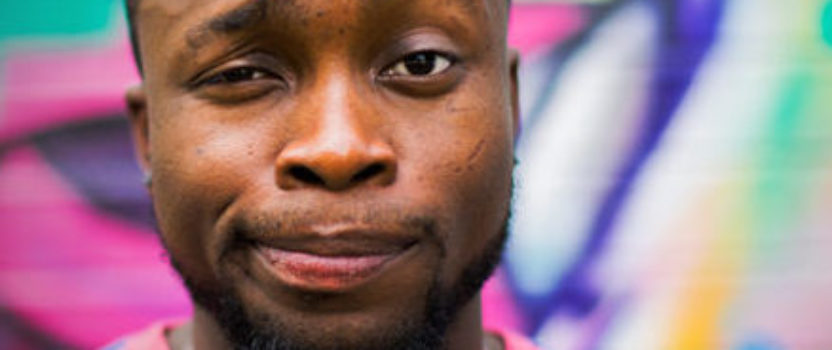to my mans:
Editor’s note: This is part of a series from our Rethink Masculinity program with ReThink and DC Rape Crisis Center. The author, Stephen Hicks, is co-director of the Rethink Masculinity program and stylistically decided to not use capitalization.
“young black males, like all boys in patriarchal culture, learn early that manhood is synonymous with the domination and control over others, that simply by being male they are in a position of authority that gives them the right to assert their will over others, to use coercion and/or violence to gain and maintain power” (c) bell hooks, we real cool
true indeed.
i guess this is a fine time to declare #NotAllMen or a similar tone at the outset, for painting with broad strokes may be inaccurate. for the moment, i choose not to. many of us — specifically cisgender, heterosexual black men — are in need of healing; however, the resources aren’t widely promoted or readily available or not started yet. in this void of healing, our toxic masculinity thrives, threatens, and tortures us. and without fail, this toxicity directly affects our partners, families, friends, and communities. our thirst for power has afflicted more than comforted.
black cishet (in twitter speak):
race, gender identity, and sexual orientation are important to name because each facet provides context to our dilemma. slavery was not an isolated incident and its legacy birthed many ills which we are grappling with today. i hope we continue to grapple with them and move to a space of reconciliation and healing. i, myself, am in need of healing and want to support others in their journeys. in the rethink masculinity course, i was compelled to re-examine and revisit what i’ve deemed as normal, default masculinity. it was mostly healthy (i guess, sorta. nah). yet, i also recognized and still recognize much of what is considered normal is still us settling for our own mediocrity. maybe the normal and default is still steeped in toxicity.
then i thought about normal, default masculinity within the black american experience. there are levels to this.
a possible conundrum: toxic masculinity won’t allow us to be labeled victims — violated by white supremacist, capitalist patriarchy. and toxic masculinity won’t allow us to see how these systems have hurt us and how we’ve internalized this oppression and used it to hurt other black people: other cishet black men, black women, black queer folks, black trans* folks, and black children. our eagerness for some semblance of power has caused much damage and it’s high time we acknowledge this and make amends.
unhealthy and toxic masculinity within my black american experience has looked like:
- my former colleague, a black queer man, not feeling comfortable in the barbershop because of the homophobic comments he’s heard when the shop is packed on saturday mornings.
- my friend who was molested as a child not afforded the trust of his adult caretakers to believe him and to confront his abuser. instead, those adults dismissed my friend’s accusations and continue to heap praise on the abuser for being a model citizen
- thinking and acting as if it’s okay for men to comment on people’s bodies and what sexual desires they have for them. Them, being perfect strangers on the street, in the office, or on the metro platform
- my former partner being silenced by my need to hog up the space and my sense of entitlement that called for her to do my emotional labor
- going to a church where the women do everything but can’t hold the title of key figurehead due to biblical interpretation
- when my most urgent concern of the weekend is where the hoes at?
- not speaking up when my friend uses the t-word in a group email
i don’t believe in a magical fix. this work of undoing toxic behavior will take time and may be a lifelong practice. we can start now. i think we are worth it. i believe we will move closer to healing by looking at our toxic masculinity.
i no longer assert myself as the know-it-all, but i want to offer some suggestions:
- hold other black men accountable. as i often say, “he ain’t ya mans if he doesn’t say anything while you bask in mediocrity.”
- be critical of rape culture and how you’ve operated in this paradigm.
- read black women writers. black women have sustained the black american family and community and so often get relegated to second tier. i started with audre lorde and bell hooks and found myself reading all of the archived blogs on crunk feminist collective. some of the most hard-hitting thought leaders are on twitter and tumblr too.
- read black queer writers. black queer writers and black women writers are not mutually exclusive identities. black queer folks live at so many intersections of race, sexual orientation, and gender identity. there’s richness in delving into those many, many perspectives. check out janet mock, alice walker, and james baldwin.
- contact Collective Action for Safe Spaces about their next cycle of rethink masculinity 8-week course. applications are now open for the fall 2017 session and close on august 23rd. if you’re out of the DMV area, look into similar programs in your area.

